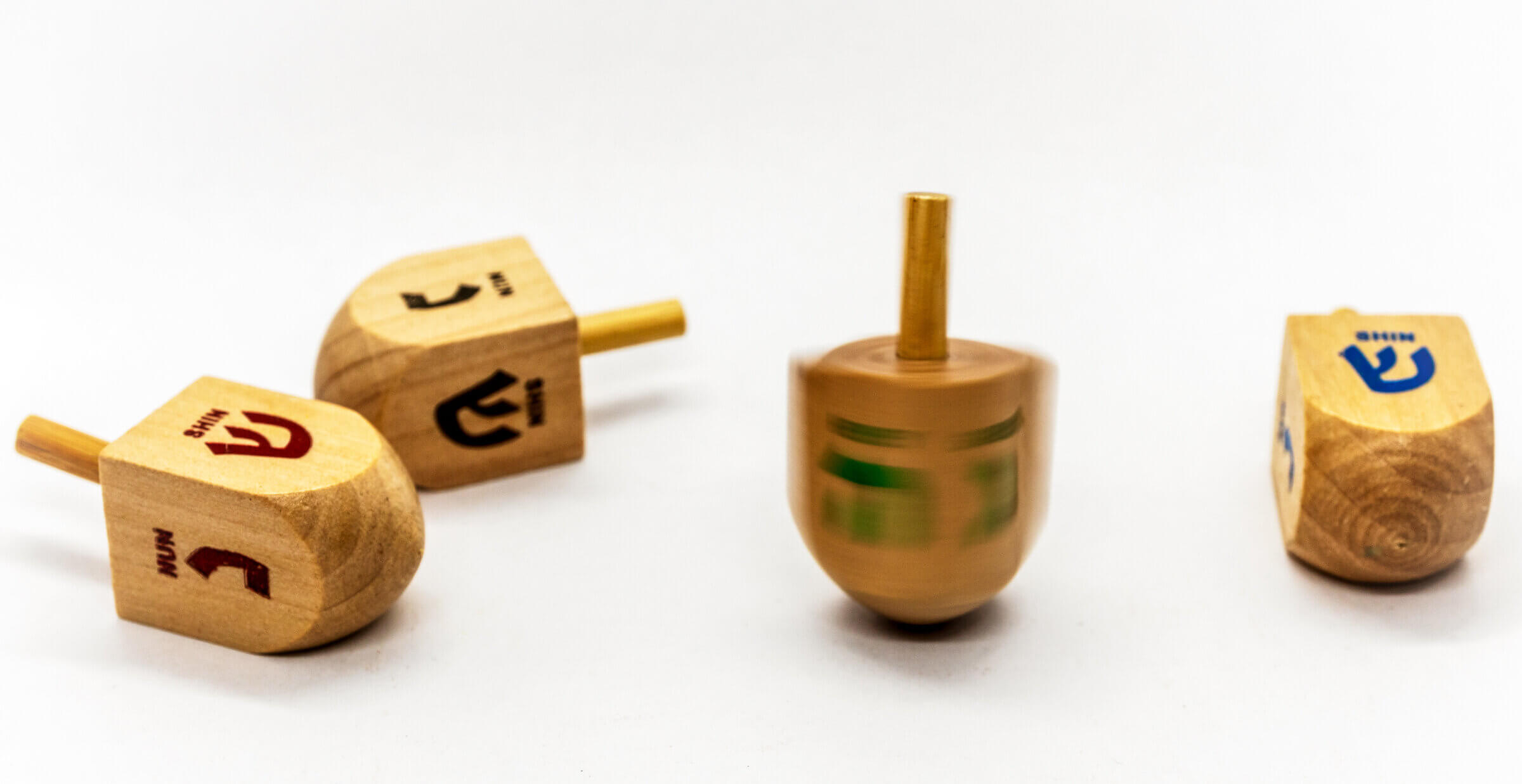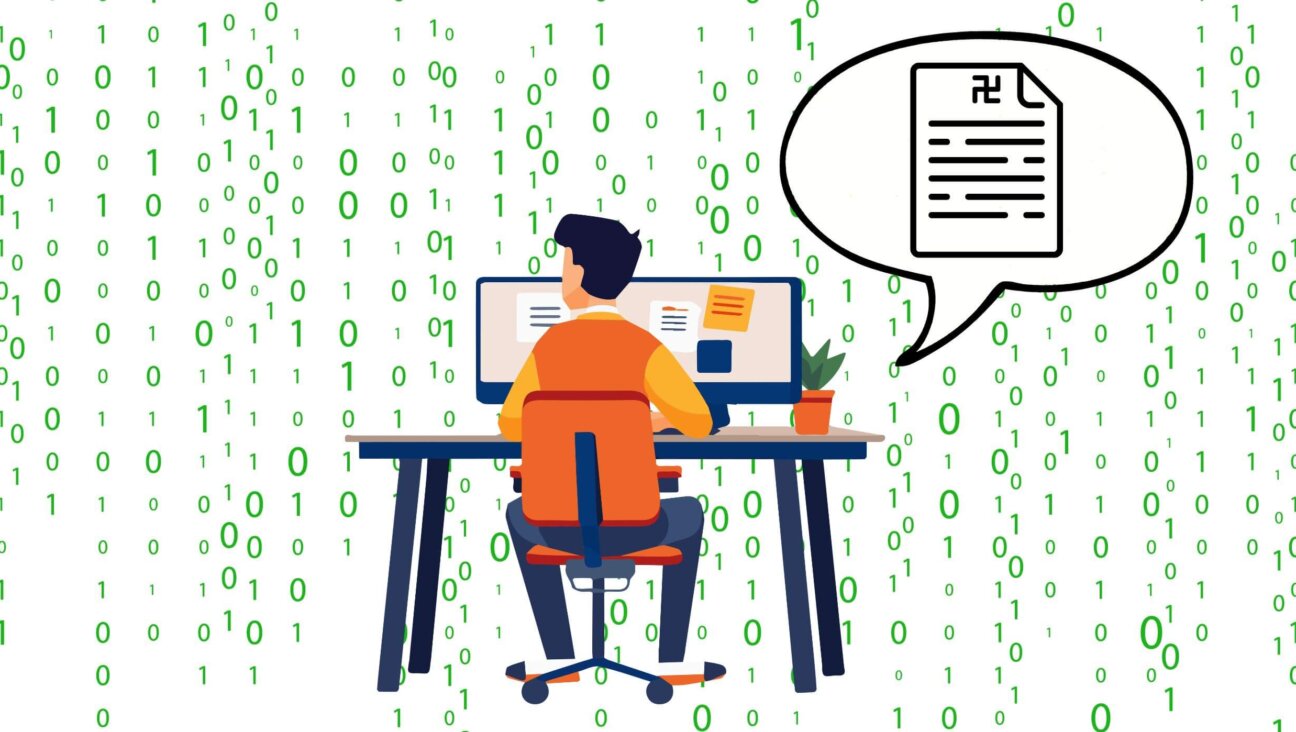first personWhy dreidel — a game of luck, not skill — might be the most Jewish game of all
Here’s why I still love getting on the floor to play dreidel — even though I’m a grown-up

Dreidel is a game of luck, not skill. What’s so Jewish about that? Photo by iStock
I love playing dreidel. I love the randomness of it, how it hardly takes any skill once you’ve mastered twisting the top just right and letting it rip for a good, long spin.
I love how it equalizes the players. A 5-year-old could best a grown-up, as my great-nephew did when I brought my dreidel collection to Florida to play with him a week ago. “I spinned it good!” he declared.
Last year, I took my dreidels to LA and got a bunch of 30- and 40-somethings down on the floor for a game. A Russian immigrant who’d never played before beat us all. And this past weekend, I played with my soccer-loving twin cousins and their grandmother. One child won the first round; Grandma won the second.
I love how it makes us pay attention. My son’s college friends came over one Hanukkah, all dressed up en route to an event much cooler than latkes at my house. But even they spent a good long while spinning dreidels in crazy swirling loops on my old parquet floor.
I love how beautiful it is when a dreidel really gets going, how we can’t help but smile when it spins so fast that it’s just a blur, and the relief we feel — even when we lose — when it finally slows and drops and reveals the player’s fate.
The Hebrew letters
And I love how it connects us to Hanukkah. The letters on each of the dreidel’s four sides — nun, gimel, hey, shin — sign the story in Hebrew (Nes gadol haya sham, meaning “A great miracle happened there”). But they also supply directions in Yiddish for how to play: nisht (nothing), gants (all), halb (half), shtel (put).
But then I get to thinking: Playing dreidel is so un-Jewish. It’s not about merit or skill, or hard work, or talent, or doing some good deed — all things we value religiously and culturally. It’s just about whether your dreidel lands on nun, gimel, hey or shin. Maybe you’ll have to put a penny in, or maybe you’ll get half the pot. Maybe you’ll get everything — or maybe you’ll end up with nothing.
That luck of the draw reminds me of something a friend’s mother once said. She was a hidden child in Holland during the war; in fact, she wrote an award-winning book about it, The Upstairs Room. Her name is Johanna Reiss, and she’s been compared to Anne Frank — except that she survived.
A survivor’s perspective
In times of trouble — after 9/11, for example, or during the pandemic’s darkest days — I’ve asked my friend, “What does Johanna say?” Inevitably, her mom is as stalwart as ever. I even keep this quote from her taped to my fridge to reread from time to time: “Life has these bumps, it’s not divided fairly. One gets none of it and others oodles, who knows why. It’s an art to stay tough, we have it. There’s always tomorrow with who knows what kind of good news, or the day after. We give in for a bit but not up.”
Kind of like playing dreidel: One player gets nothing; another gets it all. You never know what fate might have in store.
And then I think, isn’t that a Jewish story, too? A kid on the street might curse you out or grab your kippah or draw a swastika on your synagogue door. A celebrity or politician might call you names. A country might even kick you out or round you up or worse.
Like Johanna said, life has these bumps; it’s not fair. We give in for a bit, but we don’t give up. And maybe that makes dreidel the most Jewish game of all.





















